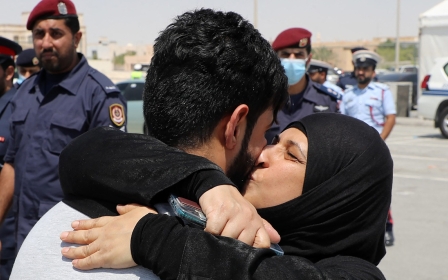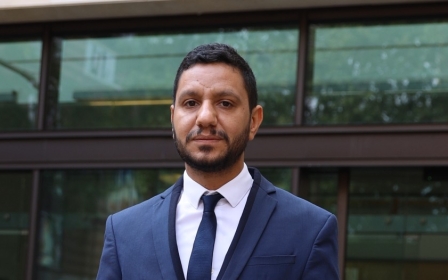Bahrain loses appeal in spyware case involving UK-based dissidents

Bahrain cannot claim state immunity to stop a lawsuit brought by two UK-based dissidents who allege that Manama used spyware on their laptops, London's Court of Appeal ruled on Friday.
In his ruling, Judge Stephen Males said "a foreign state which hacks a computer located in the United Kingdom interferes with the territorial sovereignty of the United Kingdom even if some of the acts in question take place abroad".
Saeed Shehabi, a leading Bahraini opposition figure, and Moosa Mohammed, a pro-democracy activist and photojournalist, say their computers were infected with surveillance software called FinSpy in September 2011.
The software can record every keystroke, voice call, email and browsing history, and is able to record live audio from a device's microphone and camera.
The men believe the infections, which occurred months after anti-government protests began in Bahrain when they were in contact with other activists, journalists and political prisoners, were "carried out, directed, authorised or caused" by the government or its agents.
New MEE newsletter: Jerusalem Dispatch
Sign up to get the latest insights and analysis on Israel-Palestine, alongside Turkey Unpacked and other MEE newsletters
Bahrain, which denies hacking Shehabi and Mohammed's laptops, failed in a bid at the High Court last year to claim state immunity.
'Clear message'
Mohammed said on Friday that he awaits the day "the Bahraini regime faces justice in this case for hacking my electronic devices".
"They thought they could get away with any crime, having tortured me since I was 14," he said.
"This case sets an important precedent for others, showing that the hope of getting justice is possible... It will send a clear message - not just to the Bahraini regime, but to any government that spies on dissidents on British soil.”
Ida Aduwa, a senior associate solicitor with the UK-based Leigh Day law firm, said the judgement was not only a significant victory for her clients, but also "a vital step toward accountability for states involved in transnational oppression".
"This measured and detailed ruling sets an important precedent and will provide greater protection to dissidents living in the UK who are targeted by the states whose deplorable actions they are working to fight against," she said.
Sayed Ahmed Alwadaei, advocacy director at the Bahrain Institute for Rights and Democracy (Bird), said the case - the first one related to state immunity in the UK to progress to this stage - was "a significant blow to the Bahraini regime".
"They can no longer hack the devices of dissidents on British soil without facing consequences," Alwadaei said.
"Bahrain cannot claim to inject £1bn into British business while simultaneously committing hacking crimes against its dissidents on UK soil."
Alwadaei said he hoped the progress in the case would provide hope for "many other hacking victims, demonstrating that there is a legal route to hold abusive governments accountable".
The Bahraini government did not respond to a request for comment.
Middle East Eye delivers independent and unrivalled coverage and analysis of the Middle East, North Africa and beyond. To learn more about republishing this content and the associated fees, please fill out this form. More about MEE can be found here.




